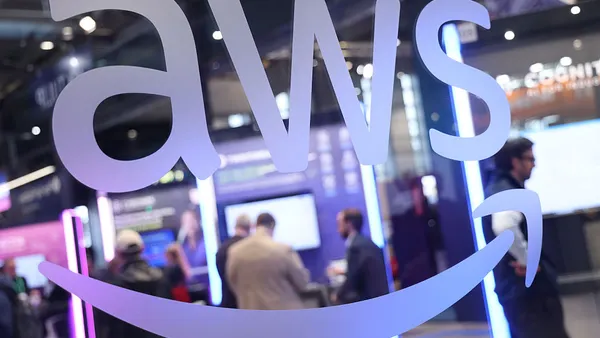Dive Brief:
- Bank of America executives listed a litany of AI achievements Wednesday, during the company’s Q2 2025 earnings call for the three-month period ending June 30.
- Nearly all the bank’s more than 210,000 associates now utilize the Erica for Employees generative AI assistant to complete password updates, equipment refreshes and other administrative tasks, and there are 17,000 programmers using AI coding tools, according to CEO Brian Moynihan. “We have 1,400 AI patents and have created over 250 AI and learning models,” Moynihan said.
- Bank of America’s AI uptake reflects a broader industry trend. Two-thirds of financial services firms have implemented AI use cases across multiple departments, according to an Indicium survey of nearly 700 IT professionals in banking and other industries published Thursday. Almost 6 in 10 respondents said their financial firm uses the technology to automate back-office processes and 56% use AI for data governance.
Dive Insight:
Bank of America’s AI adoption journey has taken years and significant upfront investment in system modernization, data operations and pilot programs. The company pours roughly $13 billion annually into its IT infrastructure, setting aside nearly one-quarter for new technologies this year.
“We are continuing to see the benefits of our long-term investment in technology capabilities, digitization and machine learning, and now we are starting to see … the AI practices that we develop pay off,” Moynihan said.
The company has reaped measurable returns on its AI investments, largely through efficiency gains across customer service and internal operations.
“Artificial intelligence allows us to change the work across many more areas of our company than prior tools allowed us,” Moynihan said. “Fifteen years ago, the company had a headcount of 300,000. Today, we have 212,000. We did that with a relentless application of scalable, secure, resilient technologies.”
Moynihan also pointed to growth in the bank’s consumer business that paralleled a nearly halving of the unit's workforce over the last decade and a half, from 100,000 to 53,000. “Deposits, I think, at the time were $400 billion and now they are $900-plus [billion],” he said.
The bank saw revenues increase 4% year over year to $26.5 billion during the second quarter. Consumer banking revenue rose 6% to $10.8 billion.
Across the financial sector, companies are prioritizing investments in AI capabilities and talent, with JPMorgan Chase, Wells Fargo and Citigroup leading the recruitment charge among 50 of the largest North American firms, according to an April Evident Insights report.
ROI on AI can take time to materialize. Wells Fargo CEO Charlie Scharf said it’s too soon to judge during the company’s Q2 2024 earnings call Tuesday.
“It's very early to see any impact of any significance from AI, but we've got capabilities and pilots in our branch system, in our ops system, in our call centers — really across anywhere where you've got anything manual and a lot of people,” Scharf said. “The impact will build over time.”
Wells Fargo recruited former Discover IT executive Heather Blair to work out of a newly opened technology hub in Columbus, Ohio, earlier this year. Blair reports to Tracy Kerrins, consumer CIO and head of enterprise generative AI at the bank.
As AI coding assistants gain traction, Citigroup and BNY were among the firms to roll out customized developer assistants powered by large language models this year.
“It's an exciting moment for AI at BNY,” the bank’s CEO Robin Vince said during a Q2 2025 earnings call Tuesday. “Nearly all of our employees are using our multi-agentic AI platform Eliza, and we have started to introduce digital employees into our workforce.”
Goldman Sachs expanded its AI initiatives this month to encompass a growing class of autonomous agents, CEO David Solomon said Wednesday during the bank’s Q2 2025 earnings call.
“We recently began collaborating with Cognition Labs and are piloting the usage of Devin, an autonomous generative AI agent designed to transform the way we build, maintain and develop software, with risk oversight and supervision of our engineers,” Solomon said. “We will be deploying these agentic AI developers for prioritized use cases, which we believe will significantly enhance velocity, transform our capabilities and drive efficiency.”















